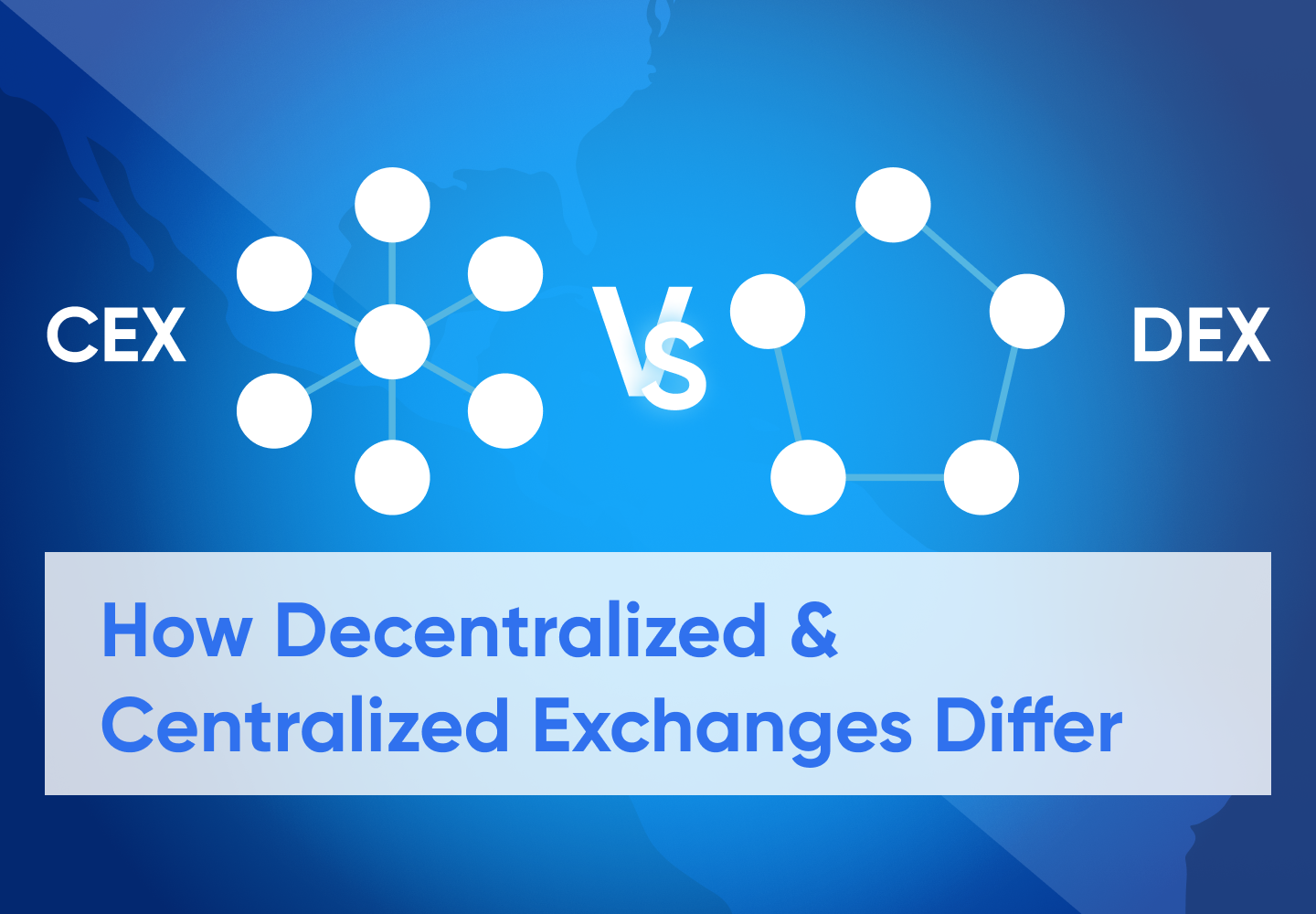What is Decentralized exchange and centralized exchange
In the world of cryptocurrency, there are two main types of exchanges: decentralized exchanges (DEXs) and centralized exchanges (CEXs). Each type of exchange has its own unique features and advantages, and understanding the differences between them is important for anyone interested in buying, selling, or trading cryptocurrencies.
Decentralized exchanges (DEXs) are peer-to-peer (P2P) platforms that allow users to trade cryptocurrencies directly with one another, without the need for a central authority or intermediary.
DEXs are often built on top of blockchain networks, which allows them to offer increased security and anonymity compared to centralized exchanges. Because DEXs do not hold users' funds, they are generally considered to be less vulnerable to hacking or fraud.
DEXs and CEXs each have their own unique features and advantages, and choosing the right exchange for your needs can be an important decision. Understanding the differences between these two types of exchanges is crucial for anyone interested in buying, selling, or trading cryptocurrencies.
One of the main advantages of DEXs is that they offer greater control and autonomy to users. Because DEXs are peer-to-peer (P2P) platforms that allow users to trade directly with one another, without the need for a central authority or intermediary, users are free to set their own terms and conditions. This can be particularly appealing to those who value privacy and want to avoid the scrutiny of a central authority.
However, DEXs do have some limitations compared to CEXs. Because DEXs are typically built on blockchain networks, they can be slower and less efficient than CEXs. They also may not offer the same level of liquidity or access to a wide range of cryptocurrencies as CEXs.
Despite these advantages, CEXs do have some drawbacks. Because they are centralized, CEXs are subject to the regulations and oversight of central authorities, which can lead to increased scrutiny and reduced privacy for users. Additionally, because CEXs hold users' funds in a central location, they are generally considered to be more vulnerable to hacking or fraud.
ADVANTAGES OF CEX AND DEX EXCHANGE
Advantages of centralized exchanges: let me talk about few ADVANTAGES;
- Easier to use: They are user-friendly interfaces and offer a range of services, such as margin trading and stop-loss orders, check ur Binance u can see this I mention.
- Higher liquidity: they have a large number of users, which means that there are more buyers and sellers on the platform. Why, because of higher liquidity, which makes it easier to buy and sell large amounts of cryptocurrency without affecting the price.
- They have Fast transaction speeds: but for for some investors, feel decentralize exchange has faster transaction and speed more than a centralized exchange.
- Centralized exchanges have their own servers and infrastructure, which allows them to process transactions faster than decentralized exchanges.
Why Advantages of decentralized exchanges:
- Increased security: Decentralized exchanges do not hold users' funds, so there is less risk of hackers stealing funds from the exchange. (This one reason I so much love a dex over a cex. Your wallet can only be hack if u expose your phrase or u are careless.
- Censorship resistance: Decentralized exchanges operate on a decentralized network, which means that they are not subject to the control or censorship of a central authority.
- Greater privacy: Decentralized exchanges do not require users to provide personal information, just as Binance KYC. Well u do ur KYC (which makes them more private than centralized exchanges.)
In conclusion, the two primary categories of cryptocurrency exchanges are decentralized exchanges (DEXs) and centralized exchanges (CEXs). DEXs give users more autonomy and power, but they could have speed and liquidity issues. CEXs may be more scrutinized and regulated, but they also provide a wider selection of trading opportunities and more liquidity. Anyone interested in purchasing, selling, or trading cryptocurrencies should be aware of the differences between these two types of exchanges.
READ MORE; HERE
IF YOU FIND THIS VALUABLE AND USUAL LIKE SHARE AND COMMENT BELOW
FOLLOW US ON SOCIAL MEDIA VIA;




Comments
Post a Comment
Thank you for your comment ✨💫